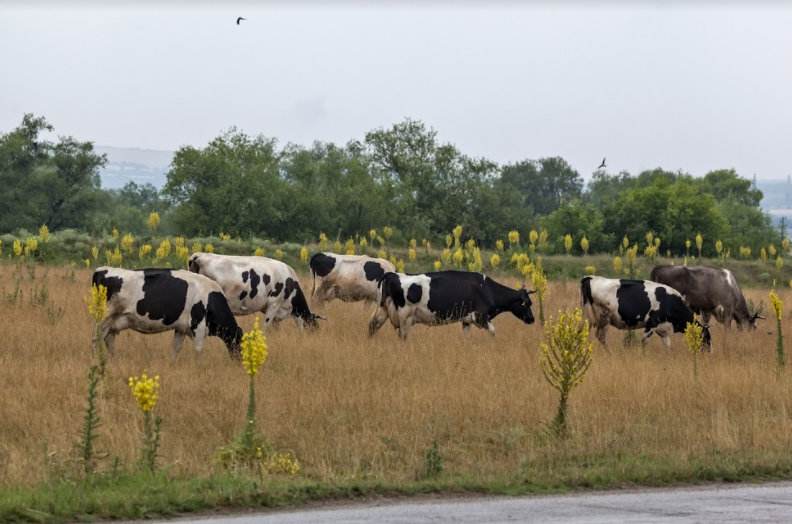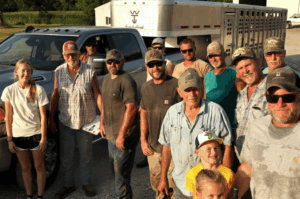Reposted from: https://thefern.org/ag_insider/farmers-advocates-concerned-about-vilsacks-record-on-dairy-issues/
Some dairy farmers and advocates are worried that president-elect Joe Biden’s pick for agriculture secretary, Tom Vilsack, will do little to address their concerns about issues like consolidation, farm bankruptcies, and low milk prices. Critics are especially concerned about how Vilsack’s years running a dairy industry trade group will affect his policymaking approach.
If confirmed, Vilsack would join the Biden administration with eight years at the helm of the USDA under his belt. When he first took office, in 2009, some dairy farmers were optimistic about Vilsack’s apparent interest in changing the industry. He convened an advisory committee of dairy experts to make recommendations for how to address price volatility and low profitability in the sector. And in 2010, the USDA and the Department of Justice held a series of hearings to address antitrust issues in agriculture, including a hearing in Wisconsin focused on dairy market consolidation.
Yet after the hearings, “USDA didn’t do anything, DOJ didn’t do anything,” says Jim Goodman, a former dairy farmer in Wisconsin and president of the National Family Farm Coalition. “That was kind of a big disappointment.”
Goodman also served on Vilsack’s dairy advisory committee. He says that although the committee met several times in Washington and generated a lengthy report with many recommendations, Vilsack ultimately didn’t adopt any of them.
“It was basically another waste of time,” he says.
Some farmers and advocates were also critical of Vilsack’s handling of issues related to the dairy checkoff, a marketing program for dairy products overseen by the USDA, during his tenure. Farmers are required to pay into checkoff programs, which exist for about two dozen commodities and spend millions annually on promotion and research. Checkoff programs have been criticized for promoting the most generic version of a food product and for failing to represent the interests of independent, smaller-scale, or nonconventional growers.
Under Vilsack, several years of legally required dairy checkoff reports were delayed, angering checkoff critics, who said the issue was emblematic of the USDA’s poor oversight of the multimillion-dollar programs. The reports were eventually published, but the fracas cost Vilsack some goodwill with farmers.
“He was obscuring the activity of a program that was already lacking in transparency,” says Angela Huffman, vice president of programs and development at Farm Action Fund. “The checkoff programs are obscure, but we really have to pay attention, because they are exactly how corporate lobbyists are funding themselves.”
So it was frustrating to many when Vilsack took a job leading the U.S. Dairy Export Council, a trade promotion group, soon after leaving public office. The USDEC is an arm of Dairy Management, Inc., the organization that administers the dairy checkoff. The USDEC’s members include dairy manufacturers and cooperatives like Luprino Foods, Sargento Foods, Dairy Farmers of America, Land O’Lakes, and Organic Valley.
The dairy checkoff program brings in more money and pays its executives higher salaries than comparable programs for pork and beef, an investigation by the Milwaukee Journal-Sentinel found earlier this year. Vilsack was paid a salary just shy of $1 million in 2018, his first year leading the USDEC, according to publicly available records. More than 1,600 dairy farms had shuttered across the country the previous year. Only around 50,000 remain.
“There’s definitely a trust problem there,” Huffman says of the consequence of Vilsack’s time working for the USDEC. She cited additional concerns about Vilsack’s poor record on civil rights and market consolidation in his first two terms at the agency. “Why would he be better this time after having worked the last four years for the industry?”
Vilsack’s nomination was praised by dairy manufacturers and industry groups. The National Milk Producers Federation, which represents dairy manufacturers, said in a statement that “all of us in the dairy community who have had the opportunity to work with [Vilsack] over the past four years know his deep passion and commitment to rural America and his understanding of its interdependence with our urban and suburban communities.”
And the CEO of Dairy Management, Inc., Thomas Gallagher, called Vilsack a “true leader in American food and agriculture.”
Yet farmers who have spent years lobbying or working with Vilsack are wary of what another four years of similar policies will mean for producers. In recent years, many dairy farmers have pushed for the U.S. to introduce federal supply controls for milk as a way to reduce overproduction and protect domestic producers. But Vilsack didn’t implement any such policies during his years at the USDA, and during his time at the USDEC, milk exports rose.
“Dairy has been broken for so long,” says Joel Greeno, a farmer in Kendall, Wisconsin, and president of Family Farm Defenders. “Do we think Tom is going to do anything about that? Absolutely he is not. We know from his history and knowing him for years and years what his intentions are.”
Still, many farmers would take the opportunity to work with Vilsack on reforming the dairy sector, says Huffman, in part because of the dire nature of the issues facing dairy farmers.
“We plan to hold his feet to the fire. If he were willing to work on checkoff reform, we’re all for it,” she says. “[T]he dairy crisis has just been so pronounced. … It’s even more urgent than ever.”



